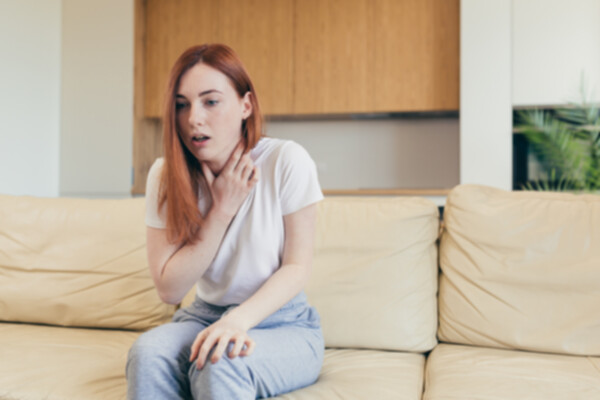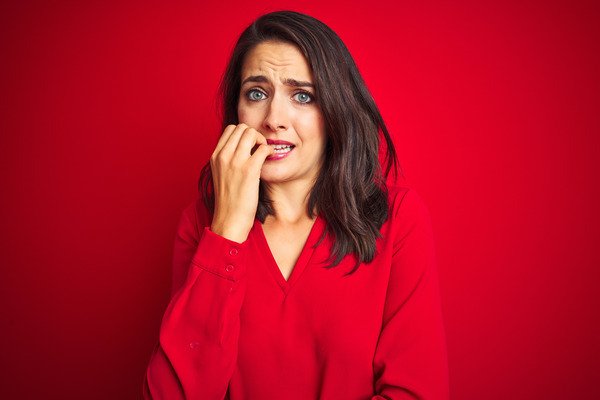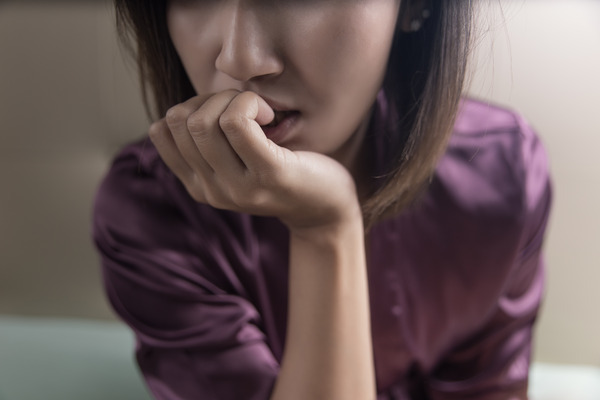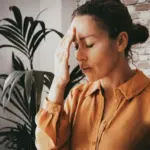Why can we experience shortness of breath due to anxiety? Can shortness of breath be a sign of anxiety? Discover the cause behind anxiety dyspnea.
experiment with dyspnea (difficulty breathing) It can make us have terrifying moments. In fact, shortness of breath is a common symptom of anxiety, although it is not usually one of the best known.
The triggers and symptoms of this disorder can vary greatly from one person to another, but there are many cases in which it is experienced in the same way. shortness of breath or dyspnea due to anxiety
As with other symptoms of anxiety, people may worry because of the difficulty breathing that they experience. In the case of this disorder, we must know that it is not dangerous for our health and that it will disappear along with the anxiety. But why is the feeling of drowning related to anxiety?
Symptoms of dyspnea due to anxiety
Anxiety is a natural response that our body has to fear. These types of reactions are fight or flight. When our body experience of anxiety It reacts physically and mentally to prepare the body to fight or flee from a given situation.
Among one of the most common responses to this reaction is lack of air People may feel a choking sensation, as well as a tightness in the chest or that they are suffocating.
Different research has shown that there is a strong link between anxiety and respiratory symptoms, including dyspnea or shortness of breath. In addition to experiencing the dyspnea due to anxiety people also suffer from the following:
- Faster breathing (hyperventilation)
- Chest tightness
- Difficulty breathing or feeling of suffocation
- Feel a lump in your throat
- Muscle tension
- Heart palpitations (stronger, faster beats)
- Feeling weak, dizzy, or unsteady
- Nausea or upset stomach
- Restlessness, irritability, or feeling nervous
When the dyspnea is due to anxiety People experience many of these symptoms together. If you experience these symptoms frequently, it is important that you go to both the doctor (to rule out other physical conditions) as well as a professional psychologist.

What causes shortness of breath due to anxiety?
The shortness of breath or difficulty breathing They are, along with other physical symptoms, part of the fight or flight response that our body has to protect us from the dangers that happen around us. Anxiety is experienced precisely because we feel that there are dangers around us, even though we are not running through our lives.
When this happens, we experience chest tightness, difficulty breathing, dyspnea, and faster breathing because our body is trying to get more oxygen to our muscles, preparing them to run in the face of danger.
Each of these symptoms are normal bodily responses designed to save our lives. Even though we don’t run or fight for our lives often, our body reacts this way because we mentally feel in danger. Therefore, it can be experienced in a feeling of not being able to take a deep breath or difficulty breathing
How to end difficulty breathing caused by anxiety?
When we experience dyspnea due to anxiety, it is important to focus on our breathing. The reason for this is that focusing our attention on the parts of the body where shortness of breath occurs allows us to gain more control over this process.
Given the feeling of shortness of breath due to anxiety, experts recommend practicing diaphragmatic breathing. This type of breathing technique involves using the diaphragm, the most efficient respiratory muscle we have. By focusing on breathing with the diaphragm, we avoid breathing shallowly, which helps us calm an anxiety attack and let go of the shortness of breath that is experienced. To be able to do it, you can follow the following steps:
- Sit or position yourself in a comfortable space to breathe.
- Place one hand on your upper chest and the other under your ribcage. This will be useful to visualize if you are using the diaphragm.
- Breathe slowly through your nose so your stomach moves against your hand.
- Tighten your stomach muscles. Let them fall inward as you exhale through your nose or mouth (depending on which is easier for you).
- Continue to inhale and exhale deeply, feeling your stomach rise and exhale. Do this for 5 to 10 minutes a day.

In addition to practicing this technique to end dyspnea due to anxiety you can also take into account the following:
- Grounding techniques: These types of techniques involve trying to feel completely in the present, as well as focusing on the sensations and emotions we experience.
- Mindful distractions: In order to end the shortness of breath due to anxiety, as well as all the other symptoms of this disorder, distraction can be very useful. For example, when faced with an anxiety attack, you can try to describe the things around you to focus on thoughts other than those related to this disorder.
- Talk to yourself: Now that you understand the reason why you experience dyspnea due to anxiety It is due to an automatic response of our body, you can remember precisely this. When you are experiencing anxiety, remind yourself that it is a response to these types of thoughts.
- Exercise: It may seem strange to exercise in the middle of an anxiety attack, but it can be helpful in ending anxiety. difficulty breathing and relieve the symptoms of this disorder.
- Personal self-care strategies: Relax, drink tea (without theine) or light pleasantly smelling candles. All of these small actions can help you relieve the signs of anxiety.
- Surprise yourself: For example, dipping your face in ice water can help you get out of a spiral of negative thoughts and relieve anxiety.
The key to being able to stop experiencing feeling of suffocation due to anxiety is to try to recognize the signs of this disorder and start focusing on your breathing before they increase. Furthermore, to end these symptoms, it is highly recommended to go to a mental health professional.









